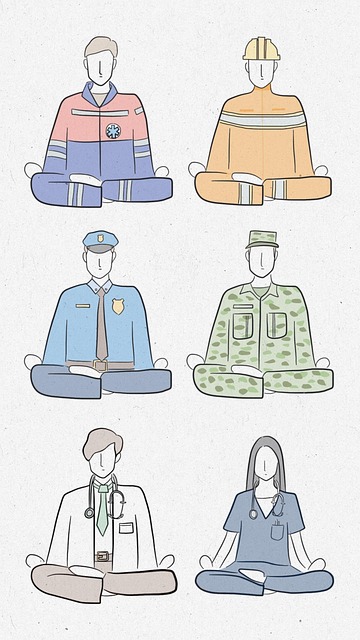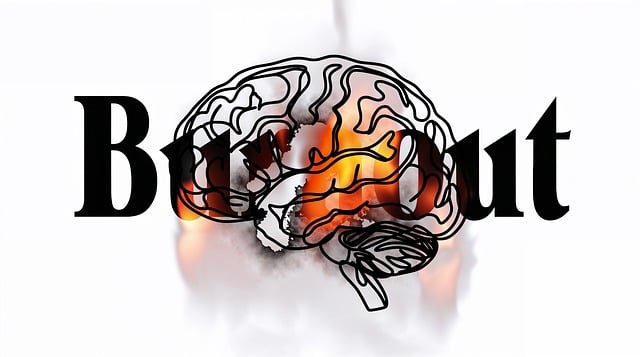Broomfield Blended Families Therapy uses the RFM (Resources, Strengths, Weaknesses) assessment as a core tool for understanding and addressing complex family dynamics. This approach promotes resilience, enhances coping mechanisms, and fosters emotionally healthy communication within step-families. By aligning with Mental Health Policy guidelines, they prevent burnout and create a supportive environment. Customized workshops and regular assessments measure success through emotional well-being, flexibility, and stress reduction, empowering families to overcome challenges.
In today’s diverse family structures, Broomfield blended families face unique challenges. This article explores RFM (Resourceful Family Management) and its role in strengthening these families through Broomfield blended families therapy. We delve into implementing resilience-building exercises tailored for blended families, offering practical strategies for effective RFM integration. By examining measurable outcomes, this guide aims to empower therapists and families alike, fostering adaptability and growth in navigating life’s complexities.
- Understanding RFM and its Role in Family Therapy
- Implementing Resilience-Building Exercises for Broomfield Blended Families
- Strategies for Effective RFM Integration and Measuring Success
Understanding RFM and its Role in Family Therapy

Resilience is a cornerstone of well-being, especially within complex family structures. This is where Broomfield Blended Families Therapy comes into play, employing techniques like RFM (Resource, Strengths, and Weaknesses) assessment to help families navigate challenges. RFM acts as a compass, guiding therapists in identifying each family’s unique resources and strengths while acknowledging potential weaknesses.
This approach fosters a tailored environment, promoting cultural sensitivity in mental healthcare practice. By understanding the dynamics of blended families through Risk Management Planning for Mental Health Professionals, therapists can build confidence and enhance coping mechanisms. The RFM model empowers families to embrace their resilience, ensuring they are equipped to overcome obstacles and thrive.
Implementing Resilience-Building Exercises for Broomfield Blended Families

Broomfield blended families face unique challenges that can impact their emotional well-being and relationships. Implementing resilience-building exercises tailored to these dynamic families is a powerful strategy. Such initiatives, often integrated into Broomfield Blended Families Therapy, aim to strengthen coping mechanisms and foster healthy communication.
Through carefully designed activities, mental health professionals can address the specific needs of blended families. This includes managing step-family dynamics, resolving conflict, and enhancing emotional regulation skills. By prioritizing these aspects, Broomfield families can navigate complexities more effectively, promoting overall mental health resilience. Moreover, aligning with concepts from Mental Health Policy Analysis and Advocacy, these exercises contribute to a supportive environment that addresses burnout prevention strategies for healthcare providers while empowering families to thrive.
Strategies for Effective RFM Integration and Measuring Success

Implementing RFM (Resilience, Flexibility, and Mindfulness) strategies effectively requires a structured approach tailored to individual needs, especially within Broomfield Blended Families Therapy settings. The process begins by educating both clients and therapists about the benefits of RFM practices. This knowledge base is crucial for fostering buy-in and active participation, enabling individuals to recognize and harness their inherent resilience. Customized workshops and activities can be designed to target specific challenges, such as stress management or burnout prevention, enhancing participants’ coping mechanisms.
Measuring the success of RFM integration involves tracking improvements in clients’ emotional well-being, mental flexibility, and overall stress levels. Regular assessments and feedback sessions allow therapists to adjust their approaches accordingly. Additionally, encouraging client reflection through journaling or discussion groups can provide valuable insights into the effectiveness of these exercises. By incorporating confidence-boosting techniques and regularly evaluating progress, Broomfield Blended Families Therapy can ensure that RFM practices remain relevant and impactful, positively impacting individuals’ ability to navigate life’s challenges.
Broomfield blended families can greatly benefit from incorporating Resilient Family Model (RFM) therapy and resilience-building exercises. By understanding the RFM’s role in strengthening family bonds, implementing tailored resilience strategies, and measuring success through various assessment methods, therapists can effectively foster adaptability and resilience within these unique family structures. This holistic approach not only enhances the well-being of individual family members but also strengthens the overall family unit, creating a more harmonious environment for all involved.














